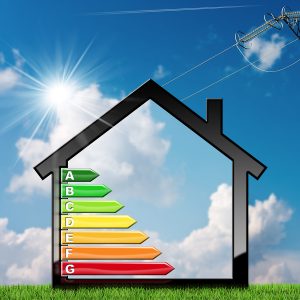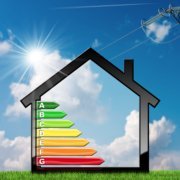Does your holiday home need an Energy Performance Certificate (EPC)?
Last Updated on July 1, 2021 by admin

An Energy Performance Certificate (EPC) has for a long time been a measure of the efficiency of a property. Changes to which properties require an Energy Performance Certificate arrived into legislation back in April 2018. As a result we have been asked by many holiday homeowners where they stand.
Whilst we’ll often bemoan forever increasing utility bills, one thing that many of us won’t consider is the energy efficiency of our holiday home. Improving this area can quickly lead to a reduction in ongoing costs and reduce the carbon footprint of your holiday home. Especially relevant is an Energy Performance Certificate assessment can help highlight areas for improvement.
Let’s take you through the key details:
What is an Energy Performance Certificate (EPC)?
If you’re not already familiar with them, EPCs record the current level of energy efficiency of your property. They also provide recommendations on how you can make improvements and reduce the costs of heating your holiday home.
Your holiday home is given an energy efficiency rating from A (the highest) through to G (the lowest); the higher the rating, the lower the costs of heating your property as a rule of thumb.
How much does an EPC cost?
EPCs tend to cost between £60 – £120 + VAT.
The cost of gaining an Energy Performance Certificate if it isn’t required can often put property owners off. It’s important to highlight that if you’re able to improve the energy efficiency the savings can far outweigh the costs. Thus an EPC can be used as a real tool in focusing the mind in creating an energy efficient holiday home.
Who currently requires an EPC?
An EPC is needed whenever a new property is built, sold or rented. There are however some exceptions when it comes to holiday homes; if your cottage is not let for more than a cumulative period of more than four months in a 12 month period then you will not need to apply for a certificate.
Another interesting area for holiday homeowners surrounds a term known as ‘a license to occupy’. This is when ‘guests to your holiday home do not have exclusive use of your property during the period of their booking’ and therefore do not have a tenancy during their stay.
That’s not to say that another guest would be able to share the property with them. This situation is more commonly associated with hotels and self-catering offerings, whereby the customer rents the room or cottage, but staff / owners still have access to it in order to carry out essential work, or room service and cleaning.
If it were a tenancy you would be asked to give your guest notice before entering the property. This is the key difference.
So how about furnished holiday lets and EPC’s?
The official guidelines state that ‘an Energy Performance Certificate will only be required for a property rented out as a furnished holiday let, as defined by HMRC, where:
- the building is occupied for the purposes of a holiday as a result of a short term letting arrangement of less than 31 days to each tenant, and;
- is rented out for a combined total of four months or more in any 12 month period
- if the occupier is responsible for meeting the energy costs for the property.
To summarise, the property must meet all the conditions of a furnished holiday let as defined by HMRC and the occupant must not be responsible for the energy costs in order for an EPC not to be necessary.
There are however some exclusions to this and it is advised that you read the full guidance on this link if you’re unsure of where you stand:
Why have an EPC?
The majority of this post has surrounded whether you need a certificate rather than the benefits of having one. An EPC can not only provide you with ideas of how to create an efficient property and lower costs, but can also be used as a valuable marketing tool.
Recent VisitEngland research has indicated a whopping 58% of all English consumers indicate they’d want to stay in green holiday accommodation. In addition 60% would pay extra if there’s a ‘demonstrable’ benefit for them. What better benefit than the knowledge that they’ll be staying in a property that’s going to be warm and cosy this winter, whilst you save on your bills? We envisage many holiday homeowners increasing the efficiency of their holiday home and proudly displaying the EPC in their Welcome Folder.
Useful Guidance on EPCs:
Government Guidance:
Boshers offer specialist holiday home insurance to owners across the UK. For information on how specialist insurance can help protect your holiday home business, call us on 01237 429444




Leave a Reply
Want to join the discussion?Feel free to contribute!